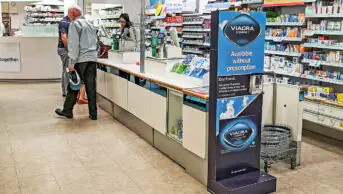
Shutterstock.com
NHS England has announced that the pharmacy integration fund (PhIF), originally proposed in December 2015 as part of the government’s plans for community pharmacy, will total £42m over the next two years. This is substantially lower than the initial figure put forward earlier in 2016, which suggested the fund would amount to £300m by 2020–2021.
The aim of the PhIF is to support the development of clinical pharmacy practice in a wider range of primary care settings, resulting in more integrated and effective NHS primary care for patients.
“NHS England is making this extra money available to help modernise the pharmacy sector and make the most of pharmacists’ skills,” says Keith Ridge, chief pharmaceutical officer for England. “Everyone agrees that community pharmacy is being held back by an old-fashioned view of the pharmacist as someone who simply dispenses medicines at the back of the shop rather than as a trained clinical professional.
“We want to work with the profession to change that and, rather than increasing the burden on GPs, the aim is to allow community pharmacists to take a greater NHS role in helping patients.”
NHS England says the fund will be directed particularly towards the use of community pharmacists and pharmacy technicians in new, integrated local care models to improve access for patients and to relieve pressure on GPs and accident and emergency departments. Two workstreams already under the PhIF are aimed at integrating community pharmacy into the NHS’s national urgent care system through the urgent medicines supply service and the urgent minor illness care work with NHS 111, and these will run in parallel from December 2016 to April 2018.
To determine exactly how the fund will be spent over the next two years, Ridge has commissioned an ‘Independent review of community pharmacy clinical services’, which is due to report at the end of 2016.


